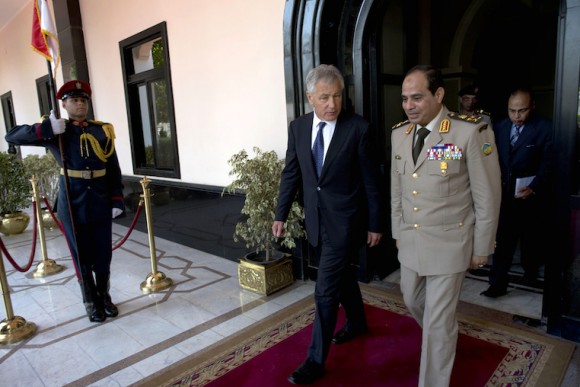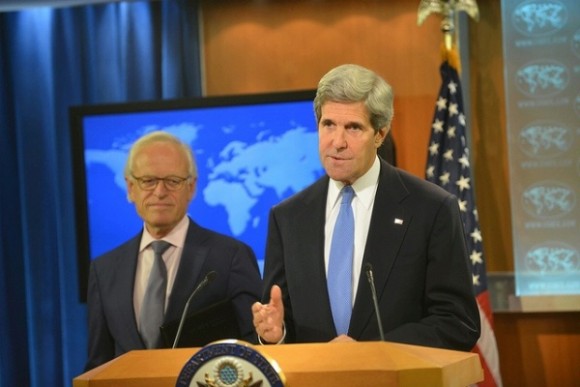
In last night’s State of the Union speech, President Obama put the spotlight on one of his invited guests, Army Ranger Sgt. 1st Class Cory Remsburg, a severely wounded veteran who was nearly killed by a roadside bomb in Afghanistan. Here’s Reason‘s Nick Gillespie in Time on why using the wounded vet as a political tool is “morally dubious.”
The most emotionally powerful moment in Barack Obama’s State of the Union address was also its most morally dubious. The nation’s commander in chief drew attention to a wounded warrior while eliding any responsibility for placing the young man in harm’s way.
A record number of Americans – 60 percent – think the government is too powerful, says Gallup, which also finds a near record low percentage trusts the government “to do what is right.” Who can blame us? The government under Republican and Democratic presidents has spent virtually the entire 21st century sending young men and women to fight in ill-defined and unsuccessful elective wars. That’s bad enough, but then to use them as props in political speeches? That’s positively obscene.
Gillespie is exactly right. As I tweeted at the time, praising Corey for almost getting killed in a war zone that Barack Obama ordered him into is a bit off.
Praising wounded soldiers who fight in the country’s wars is an old pastime, stretching back to tribal warfare and the ancient Greeks. It is mostly an attempt to gin up support for state violence.
So when Obama paid tribute to our warriors “who risk and lay down their lives to keep us free,” he was not being genuine. Does having 50,000 U.S. troops in Germany really have anything to do with keeping us free? Or is it what policymakers, in their less public moments, have said NATO is all about, namely ensuring the U.S. maintains dominance over the European continent? Are the approximately 50,000 U.S. troops in Japan really there to keep Americans “free”? Or are they there, as in Europe, to maintain Washington’s dominance and, more lately, contain a rising China? Did troops really invade Iraq in 2003 to secure the freedom of Americans? Isn’t it true that the presence of U.S. troops in the Middle East motivated al-Qaeda to attack us on 9/11, and thus made us less secure and less free?
And if the troops in Afghanistan are there to protect freedom all the way back here in America, why does it look like we’ll be pulling out with none of our major objectives accomplished and the Taliban as strong as ever? Might Americans have been just as free if we pulled out in 2009, when Obama took office and when Corey was nearly killed? Wouldn’t Afghanistan be in approximately the same position it is now, with a weak government that survives on foreign aid and systemic corruption and a Taliban insurgency that, despite the vaunted surge, looks like it can break up the country?
By 1965, Secretary of Defense Robert McNamara had privately admitted the war in Vietnam was unwinnable, but necessary in order to maintain American credibility and prestige. The war in Afghanistan is very much the same. Soldiers sent to fight and die in Afghanistan are sent for the international reputations of politicians in Washington, to save face, to prove to the world that America will use force even in lost wars.
The greatest threat to Americans’ freedom doesn’t come from Germany or Japan or Iraq or Afghanistan. It comes from Washington. That’s why people in the Founding generation like James Madison said, “A standing military force, with an overgrown Executive will not long be safe companions to liberty.” He also warned posterity that, “No nation could preserve its freedom in the midst of continual warfare.” Thomas Jefferson described “standing armies” as a “menace to the liberties of the people.”
If Obama said something like that, it would have been a hard truth put to the country. Hard, but at least it’d be true.






